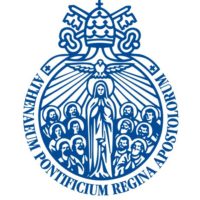Press Release – Multicultural and Interreligious Perspective on Informed Consent





The UNESCO Chair in Bioethics and Human Rights will hold its 6th international Bioethics, multiculturalism and religion workshop to discuss issues of informed consent and clinical research February 21-23. As part of the i-Consent consortium (a project funded by the European Union – Horizon 2020), the ethical reflections of the workshop will focus on the multicultural and interdisciplinary dimension of the ethical requirements of informed consent applied to transnational / clinical research and vaccination. The discussion will take place in the Aula Master of the Pontifical Athenaeum Regina Apostolorum and the European University of Rome, in Via degli Aldobrandeschi, 190 in Rome (reserved entry).
“We do believe in the importance of this day of study and dialogue on such an important topic – says Alberto Garcia, director of the Chair – because in scientific research we find gaps, barriers and practices in the process of requesting informed consent. Too often the human person and his fundamental rights, the cultural and religious diversity of the subjects in biomedical experimentation are not fully taken into consideration. We want to study and fill this gap in response to the main asset of the project launched by the European Union”.
“Informed consent is a subject that is not only medical,” explains Mirko Garasic, researcher of the Chair – “but which invests the person’s culture and religion. To assume that all the world’s traditions are willing to accept that the individual-centric approach of autonomy at the base of informed consent is short-sighted and counterproductive. For this reason, our workshop is important: we need to start from the common values that the various faiths share, to analyze the differences together and to adapt (also) health policies to more complex and less monolithic situations “.
“It is important to discuss and face the limit between the autonomous and relational self in informed consent” – continues Fr. Joseph Tham, LC professor of Bioethics – “together with Prof. Marie Letendre we have analyzed over time the analysis of autonomy in informed consent is changing. It is moving from a concept of autonomous decision-making process to a more articulate and relational relationship between patient-doctor.
Therefore, we aimed to demonstrate the shift from an individualist to a more relational form that helps to understand the autonomy in giving consent, without neglecting the cultural and ethical aspects of the health system”.
The panel of speakers and the audience are international and from different backgrounds; there will be contributions and reflections from influential exponents of various religions (Buddhism, Confucianism, Christianity, Judaism, Hinduism, Islam).
APRA Press Office, Dr. Emiliana Alessandrucci ealessandrucci@upra.org
UER Press Office, Carlo Climati carlo.climati@unier.it
Attached – Detailed program
_____________________________________________________
Feb 20, Tuesday
Arrival
Welcoming dinner
Feb 21, Wednesday
8:00 Breakfast at hotel
9:00 Greetings by authorities and Introduction
Alberto Garcia, Gonzalo Miranda, Jesus Villagrasa.
10:00 Multiculturalism, Religion and Informed Consent: Mirko Garasic
11:00 Coffee break
11:30 UDBHR and informed consent: Dafna Feinholz
12:15 Informed Consent: From Autonomous to Relational self:
Marie-Catherine Letendre, Joseph Tham
13:00 Lunch
14:30 Buddhism: Ellen Zhang
16:00 Coffee break
16:30 Christianity: Laura Palazzani
18:00 Break
19:00 Dinner in Rome
Feb 22, Thursday
8:00 Breakfast at hotel
9:00 Confucianism: Ruiping Fan
10:30 Coffee break
11:00 Hinduism: John Lunstroth
12:30 Departure for lunch and cultural activity
19:00 Public session: Religion, Human Rights and Informed Consent
Ellen Zhang, Martha Tarasco, Ruiping Fan, John Lunstroth, Aasim Padela, David Heyd
Moderators: Joseph Tham and Mirko Garasic
20:30 Refreshment / Cocktail
Feb 23, Friday
8:00 Breakfast at hotel
9:00 Islam: Aasim Padela
10:30 Coffee break
11:00 Judaism: David Heyd
12:30 Break
13:00 Lunch
14:30 Conclusion
16:00 Farewell and departure
Participants
- Dafna Feinholz, UNESCO, Paris
- Ellen Zhang, Hong Kong Baptist University, Hong Kong
- Aasim Padela, University of Chicago, USA
- Ruiping Fan, City University of Hong Kong, Hong Kong
- David Heyd, Hebrew University, Jerusalem
- Laura Palazzani, LUMSA, Rome
- Martha Tarasco, Anáhuac University, Mexico City
- John Lunstroth, University of Houston, USA
- Alberto Garcia, UNESCO Chair in Bioethics and Human Rights, Rome
- Gonzalo Miranda, School of Bioethics, Regina Apostolorum, Rome
- Joseph Tham, School of Bioethics, Regina Apostolorum, Rome
- Mirko Garasic, UNESCO Chair in Bioethics and Human Rights, Rome
